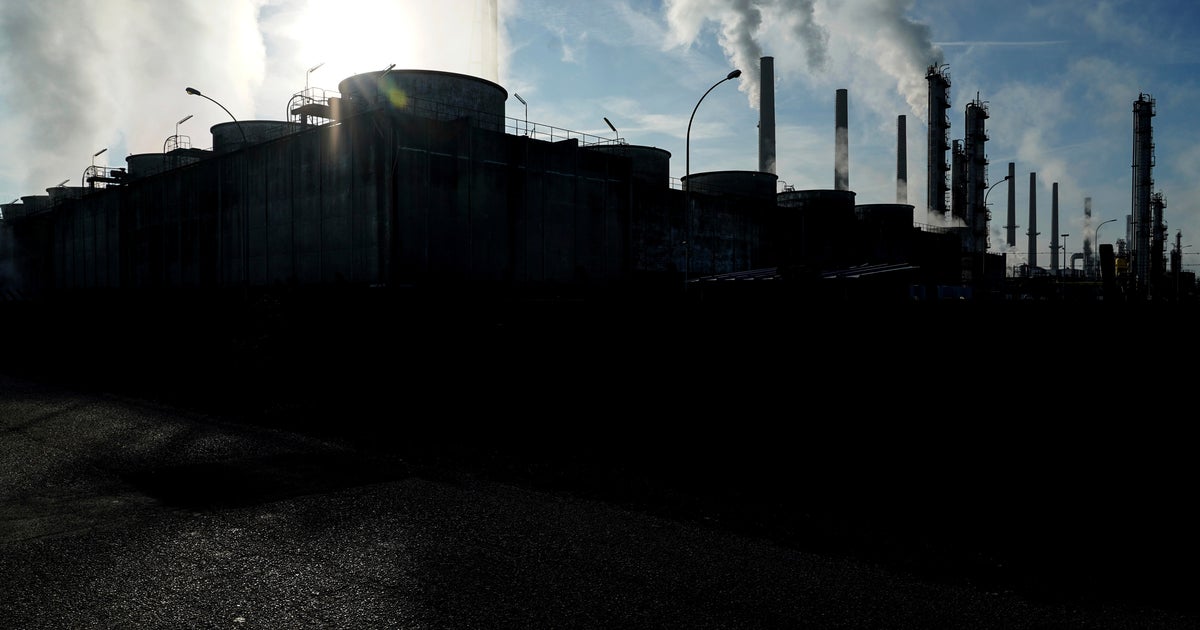Iran warns Trump over short war "illusion" as allies push him to keep the nuclear deal alive
President Trump arrived in Japan on Thursday for a G-20 summit that will see him pressured by key European allies to put the brakes on a dangerous standoff with Iran. Mr. Trump confounded the other parties to the 2015 Iran nuclear deal last year when he made good on his campaign promise to pull the U.S. unilaterally out of the agreement.
The deal, negotiated with Tehran by President Barack Obama's administration along with Russia, the U.K., France, Germany, China and the European Union, granted Iran significant relief from international sanctions in exchange for new limits on its nuclear program -- as monitored and verified by the global nuclear watchdog agency.
Tension with between Iran and the U.S. has risen steadily since President Trump withdrew the U.S. from the deal and hit the Islamic Republic with harsh economic sanctions. One week ago, Mr. Trump stopped -- with just an hour to spare -- American warplanes from attacking Iranian military targets in retaliation for the shoot-down of a U.S. spy drone.
Iran had said that if European parties to the deal failed to put in place a mechanism by Thursday for them to work around the U.S. sanctions, to keep doing business and keep money flowing into Iranian state coffers, it would exceed the nuclear deal's limit on its stockpiles of low-enriched uranium.
Will the nuke deal blow up?
Diplomats in Vienna, where the International Atomic Energy Agency (IAEA) is based, told the Reuters news agency that Iran had not crossed the 300 kilogram threshold on Thursday, but that was on pace to do so by the weekend.
Tehran has also set a further deadline of July 7, when it has said it could breach a nuclear deal restriction on the level of purity of uranium it has enriched. That would dramatically shorten the time required to "break out" from a civilian nuclear program and build a nuclear weapon.
Either move -- but certainly the latter -- would effectively nail shut the coffin on the nuclear deal. It would also dramatically change the diplomatic equation in the standoff.
Pressure on the U.S.
All other parties to the nuclear agreement have called repeatedly for Iran not to abandon its agreements, despite the Trump administration's decision to walk away first. Mr. Trump has long derided the agreement as too generous to Iran, and complained that it fails to address Iran's other nefarious actions in the region.
"I want to convince Trump that it is in his interest to re-open a negotiation process (and) go back on certain sanctions to give negotiations a chance," French President Emmanuel Macron said Thursday as he arrived in Japan.
Macron is scheduled to meet Mr. Trump during the G-20 summit. The U.S. leader will likely hear a similar message from the leaders of Germany and Britain.
Military chiefs from those nations delivered the same message to Acting U.S. Secretary of Defense Mark Esper in Brussels on Thursday. Esper told NATO allies the U.S. is not seeking a war, but reiterated the need to prevent Iran gaining a nuclear weapons capability and address its support for militant groups across the Mideast.
Germany, France and other allies stressed to Esper that, in Europe's view, the nuclear agreement is the only viable way to keep Iran from developing that capacity without bloodshed, and said the deal should not be jeopardized.
The risk of war
If Iran does exceed the stockpile limit and chooses to enrich its uranium closer to weapons-grade it makes a U.S. intervention much more likely, as Mr. Trump has drawn a red line under Iran obtaining nuclear weapons. If it comes to conflict the Europeans, and Russia and China, will be forced to take sides, or to try and stand awkwardly on the side lines.
Britain's Foreign Secretary said this week that he could not "envisage any situation where they (the U.S.) request or we agree to any moves to go to war" with Iran.
Mr. Trump has warned that any war with Iran would see the "obliteration" of the country. He has also said a conflict with the Islamic Republic would be over quickly, and would not involve U.S. "boots on the ground."
But a U.S. attack on Iran could draw a multi-pronged response: Iran has an extensive arsenal of conventional missiles and rockets, and it backs well-armed militant groups in Lebanon, Syria, Iraq and Yemen. It could chose to employ any or all of those resources to target not just U.S. personnel in the region, but also close allies like Israel and Saudi Arabia.
A political scientist at the RAND Corporation in warned in an article published Thursday that, "over-optimistic beliefs about relatively quick wars played a part in causing World War I, Vietnam, the Soviet invasion of Afghanistan, the U.S. operation in Afghanistan, and of course Iraq."
Senior political scientist Michael Mazarr told French news agency AFP that "any argument that conflict with Iran would be quick and highly contained would reflect -- as the Iraq case did -- a powerful desire to believe that war can be fought on the cheap."
"There are cases where limited strikes do resolve fairly quickly," Mazarr told AFP, "but there are many other cases where the assumption of quick and easy military operations proves disastrously wrong."
Iran's Foreign Minister sent a tweet on Thursday, meanwhile, warning that "misconceptions endanger peace." He called any hope that a war with his country might be brief, "an illusion."




